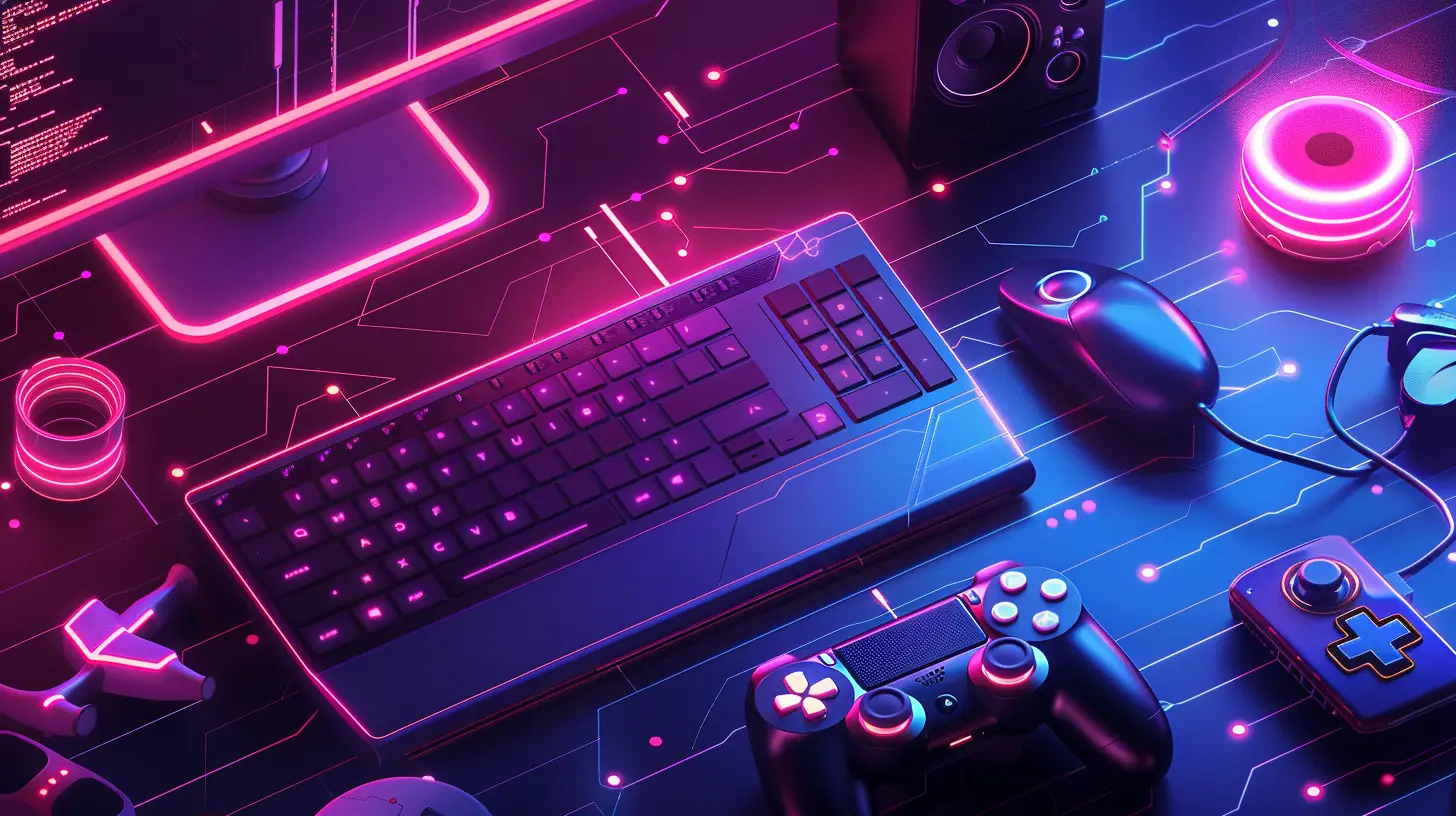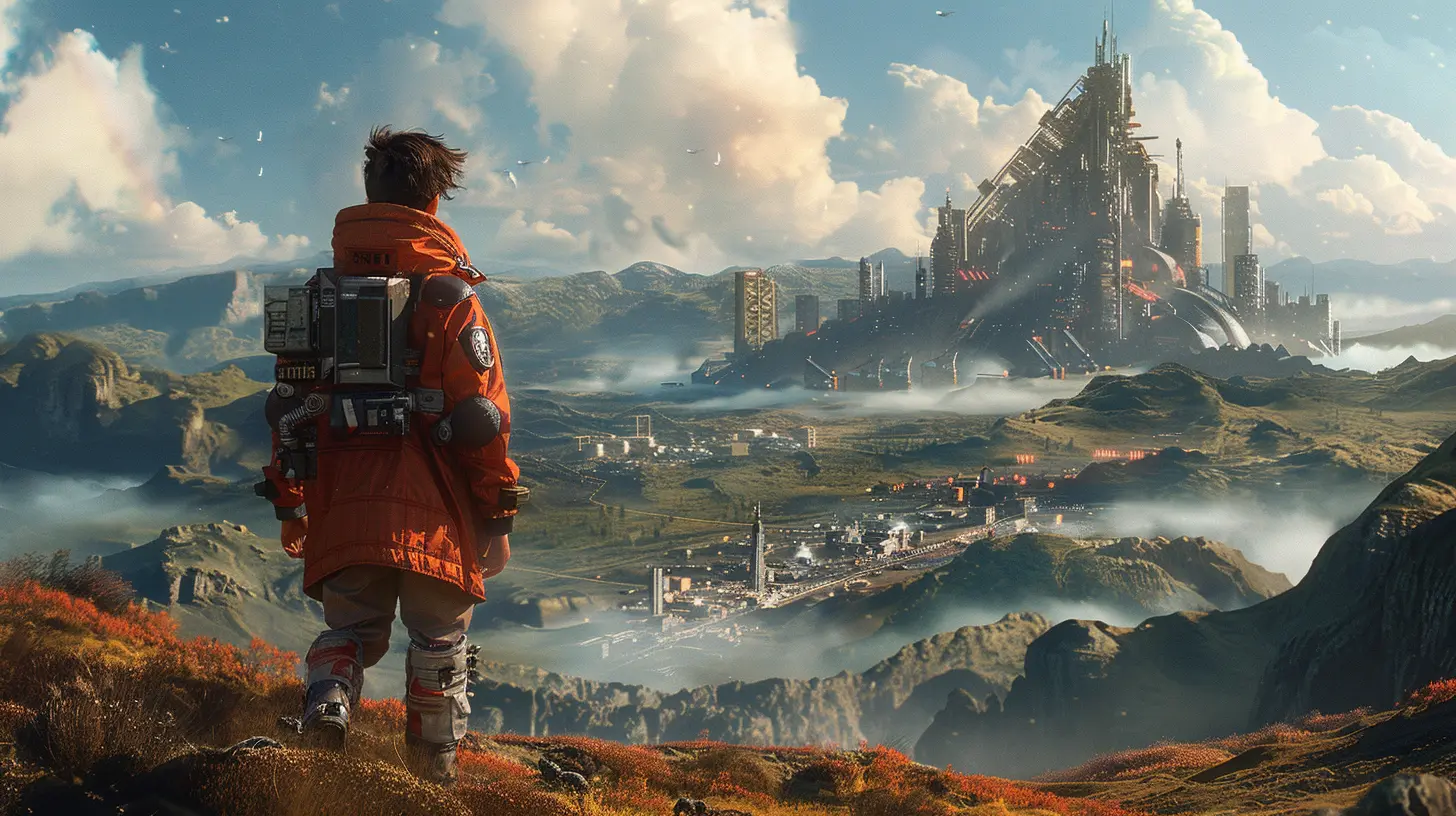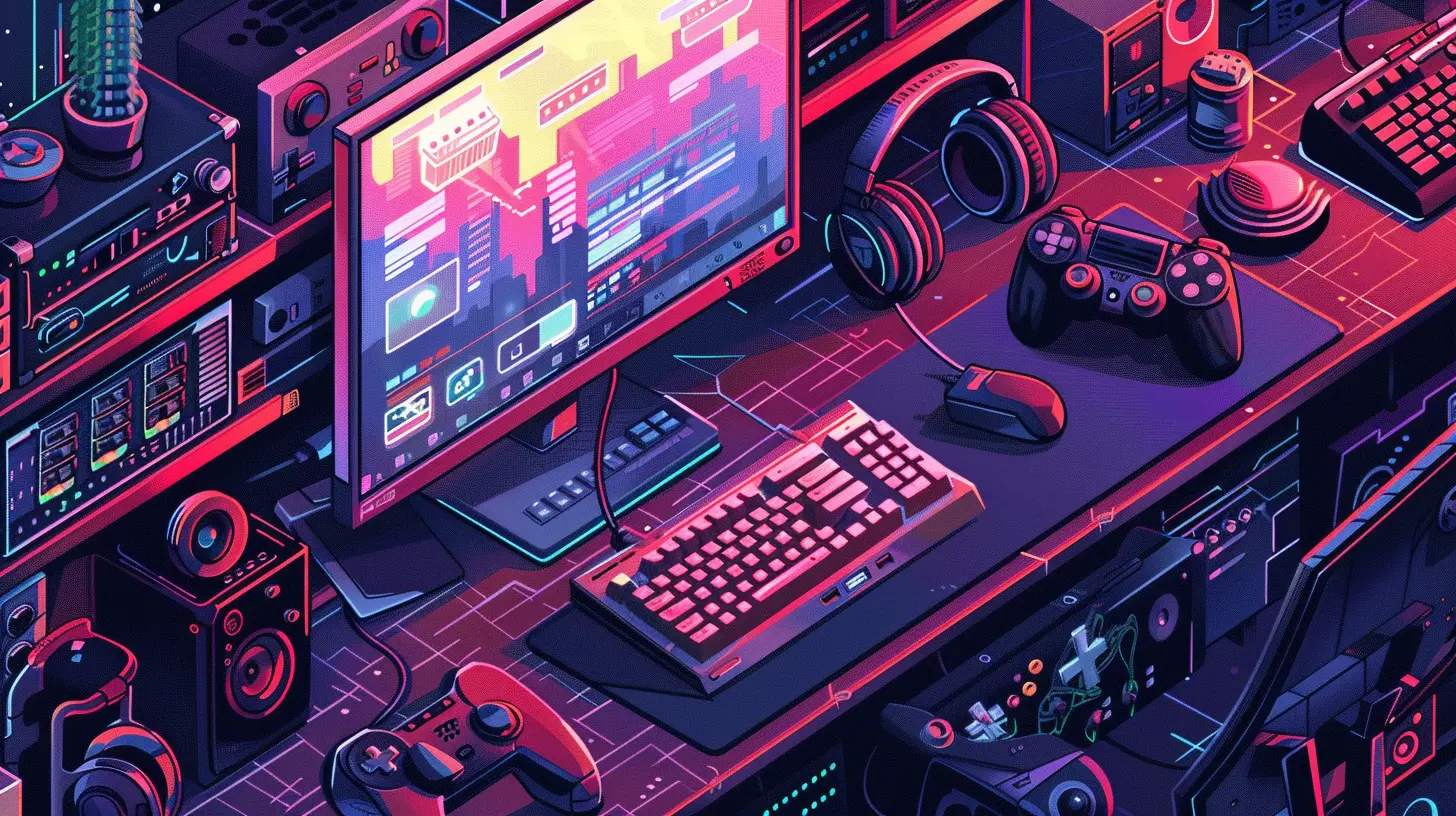Open Source Gaming: The Future of Indie Game Development
10 June 2025
In a world where AAA studios dominate the spotlight with multimillion-dollar budgets and massive development teams, indie game developers have carved out a passionate, ever-growing corner of the gaming universe. And right at the heart of this indie revolution? Open source gaming.
You might be wondering, “How does open source even relate to game development?” Or maybe you're already knee-deep in code and looking for the next big edge. Either way, stick around—because the open-source movement isn’t just changing how games are built. It’s redefining what’s possible in game creation altogether.

What is Open Source Gaming, Anyway?
Let’s break it down, plain and simple.Open source gaming refers to the use of open source software—game engines, development tools, art assets, even entire game projects—where the source code is freely available for anyone to use, modify, and distribute.
Think of it like a giant community cookout. Instead of one chef guarding a secret recipe, everyone brings their ingredients, shares their dish, and collectively makes the meal better.
It’s collaborative, creative, and best of all—accessible.

Why Is This a Game-Changer for Indie Developers?
Indie developers often work on tight budgets, limited resources, and small teams—sometimes even solo. So, anything that saves time, money, or headaches is a big win. That’s where open-source gaming tools shine brighter than a pixel in a retro arcade game.Here’s why:
1. Lower Barriers to Entry
Ever tried licensing a powerful game engine? For small studios or solo devs, that price tag can be a serious buzzkill.Open source tools like Godot, Love2D, and Panda3D offer powerful features without the heavy licensing costs. Want to build a 2D platformer or a full-blown 3D RPG? You can dive right in—no wallet required.
2. Creative Freedom
With proprietary engines, you’re often stuck in their ecosystem. Want a certain feature? You wait for updates—or worse, pay for plug-ins.But with open-source engines, if something’s missing, you just build it yourself. Or better yet, someone probably already has, and you can use (or tweak) their solution. It’s like having a toolbox that’s constantly refilled by devs around the globe.
3. Learning Through Community
Let’s face it—coding can be rough. Especially when you're stuck on a bug at 2 AM.But with open-source projects, communities rally around one another. Forums, documentation, tutorials, GitHub repositories—they’re all teeming with fellow developers who’ve “been there, done that.”
It’s kind of like joining a co-op RPG—you always have backup when you need it.
4. Ownership and Control
One of the biggest frustrations with closed-source platforms is losing control. Maybe a company changes its policy, or discontinues a tool you’ve built your game around.With open source? You own your game, your code, your rules. No surprise updates breaking your build overnight. It’s development on your terms.

Popular Open-Source Game Engines Powering Indie Games
There’s a colorful variety of open-source engines out there, each with its strengths. Let’s look at a few rockstars that have empowered indie devs around the world.Godot Engine
Godot is like the Swiss Army knife for indie game development. It supports both 2D and 3D development, uses a Python-like scripting language called GDScript, and has a clean, beginner-friendly interface.What makes Godot stand out? It’s lightweight, flexible, and completely free—even for commercial use. No royalties. No strings attached.
Plus, the Godot community is buzzing with activity. Need help? There’s probably a YouTube tutorial, Reddit thread, or GitHub issue that’s got your back.
Love2D
This Lua-powered engine is perfect for 2D games. It’s minimalistic, fast, and incredibly satisfying to use. For puzzle games, platformers, or pixel art throwbacks, Love2D offers a snappy, streamlined experience.And did we mention it’s fun? Coding in Love2D feels like playing with LEGOs—simple, modular, and surprisingly powerful.
Panda3D
Originally developed by Disney, Panda3D is a full-featured 3D engine. It’s written in C++ but uses Python for scripting, making it both high-performance and accessible.With a bit of setup, you can do some impressive things with Panda3D—VR, real-time simulations, and more.

Real-World Success Stories: Indie Games That Went Open Source
Need proof that open source can work in the real world? Let’s talk success stories.Battle for Wesnoth
A classic turn-based strategy game that's been around (and actively maintained) for years. It’s not just open source—it’s thriving. With community-made expansions, mods, and translations in dozens of languages, Wesnoth is a poster child for the open game movement.Cataclysm: Dark Days Ahead
This rogue-like survival game is brutally challenging—and completely open source. The community regularly contributes new items, mechanics, and artwork. It’s like The Walking Dead and Linux had a baby, and now it won't stop growing.OpenTTD
Love transportation sims? OpenTTD is an open-source remake of the beloved Transport Tycoon Deluxe. Players and developers have fine-tuned it for over a decade, adding multiplayer support and massive quality-of-life improvements.These games aren't just playable—they’re addictive, innovative, and fully community-powered.
How Open Source Fosters Creativity in Game Design
Here’s an underrated advantage of open source—it encourages wild creativity.Modding Made Easy
Because the source code’s open, indie games built with open-source tools are often much easier to mod. We’re talking total game overhauls, new story arcs, unique character classes—you name it.The modding scene keeps content fresh and fans engaged. What’s better than a fan base? A creative fan base.
Cross-Disciplinary Collaboration
Open source invites artists, sound designers, writers, and coders to contribute side by side. Imagine a jam session—everybody’s bringing their instrument and jamming out.This kind of synergy leads to some seriously unique game experiences that big studios might shy away from (because of risk, red tape, or rigid timelines).
Challenges of Open Source in Indie Game Development
Okay, it’s not all unicorns and pixel rainbows.Open source does come with its own set of hurdles. Let’s be real about them.
1. Steep Learning Curves
Some open-source tools aren’t as polished or beginner-friendly as their commercial counterparts. If you’re just starting out, that can be tough.Solution? Patience, tutorials, and lots of coffee. The payoff is worth it.
2. Fragmented Tools
Sometimes you find the perfect engine… only to realize the asset pipeline you planned on using doesn’t work with it. Open source isn't always plug-and-play.But hey, that’s the price of freedom—sometimes you have to do a little stitching to make your toolkit work.
3. Limited Support
Big studios have teams dedicated to support and bugs. Open source? It’s hit or miss.That’s why community involvement is key. When you give back—answer a forum post, fix a bug, share a tutorial—you make the experience better for everyone.
The Future: Why Open Source Is the Road Ahead
Let’s zoom out and look at the big picture.Gaming is growing at warp speed. New platforms, new genres, new audiences. Indie devs are pushing boundaries in ways we’ve never seen before.
Open source arms them with the tools to experiment fearlessly, build sustainably, and collaborate globally.
It’s also tapping into something deeper—the desire for authenticity, creativity, and community in an industry sometimes ruled by trends and bottom lines.
As more devs share their work, more players join niche communities, and more projects rise from open platforms... it feels inevitable. The momentum is here.
Open source isn't just a trend—it’s a movement. And it's one that’s reshaping the landscape of game development, pixel by pixel, byte by byte.
Final Thoughts
If you're an aspiring indie developer, or even just a curious gamer, now's the perfect time to jump into the open-source universe.Grab an open-source engine. Try modding an existing project. Join a development forum. Start small—but start somewhere.
The future of indie game development isn't locked behind paywalls or gated by corporate policies. It's open, it's thriving, and it's waiting for you.
all images in this post were generated using AI tools
Category:
Open SourceAuthor:

Ugo Coleman
Discussion
rate this article
2 comments
Quentin McKinstry
Open source gaming is revolutionizing indie game development by fostering collaboration and innovation. By providing accessible tools and resources, it empowers creators to develop unique projects without financial constraints, ultimately enriching the gaming landscape with diverse and creative experiences for players worldwide.
June 16, 2025 at 11:40 AM

Ugo Coleman
Absolutely! Open source gaming truly democratizes game development, enabling diverse voices and innovative ideas to flourish, which ultimately enhances the gaming experience for everyone.
Ella McMillen
Open source gaming is revolutionizing indie game development by fostering collaboration and innovation. Developers can leverage shared resources, enhance creativity, and lower costs. As more projects embrace this model, we can expect a diverse array of unique gaming experiences that challenge mainstream norms.
June 11, 2025 at 5:06 AM

Ugo Coleman
Absolutely! Open source gaming empowers indie developers by promoting collaboration and creativity, leading to innovative and diverse gaming experiences that push beyond mainstream boundaries.


